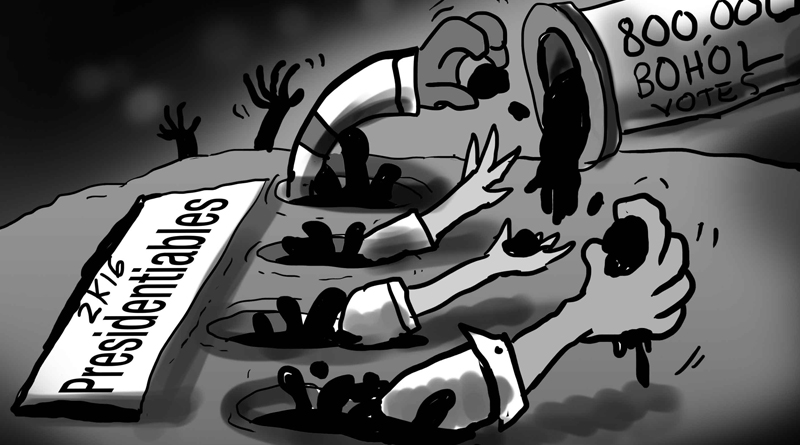VERY FEW EVENTSÂ can capture what “journalism done right” can do to society than the true story-based movie recently titled “Spotlight”.
In 2002, The Boston Globe, one of the oldest and most respected newspapers in America, Â exposed 30 years of child abuse by Catholic priests in 66 Â Boston parishes and the attempt of the hierarchy to hide them to “protect the institution”
All in all 250 priests were indicted, the principal  protector Archbishop Law was unceremoniously removed,, Pope John Paul II sounded the alarm that reverberated in the entire globe shocking the foundations of the Catholic clergy.
The investigative group “Spotlight” did not draw attention to themselves, never competed for sensationalism and sew a common collective  thread in a battle against the churchmen and lawyers to cover the truth.
Most riveting were the interviews of men who were sexually abused when they were still boys but were either too shamed, afraid and depressed to do anything by themselves.
The intrepid journalists  -in a year’s work-  led to the institution of church reforms way beyond the confines of Boston  that had ,in a large way, helped restore the church’s dignity in the coming years. The day after The Boston Globe published the first of its 600 articles on the issue- the office was flooded by calls of hundred of sexually abused victims.
To the reporters- the job assumed a life bigger than their own as they developed genuine affection and care for the victims and realized such abuse could have “happened to anyone of them.”
In a sense , Journalism fought two institutions -in order to right a terrible wrong: the Church and the Judicial System.
Said Cardinal Bernard Law , in attempting to squelch the investigation to Globe editor Robby Robinson ” The city (Boston) flourishes when its great institutions work together.” Robby merely disagreed and told the cardinal “the media will stand alone.”
Cardinal Law and other bishops simply re-assigned priests from one parish to another when they are accused of pedophilia or hid them from view by labeling them in the directory as “sick” or “on leave”. Â They were accomplices in crime.
The lawyers also made money of the moral crisis by supposedly representing the victims. In fact they were just there to make a killing by suggesting a huge financial settlement with the church  -with the lawyers getting one third of the money. There was no real interest in justice.
So editor Robinson confronted one major lawyer and said (paraphrased):” There are two stories here – one about a degenerate clergy -the other, about lawyers making a cottage industry of this moral aberration. Which story do you want Globe to write about?”
This is the kind of moral courage facing a moral horror that won for the The Globe- the Pulitzer 2003 Award for Investigative journalism including the editor, and reporters  Michael Rezendes, Sacha Pfeiffer and Matty Carroll.
The New York Times commented that journalists today are “portrayed as either idealists or cynics, crusaders or parasites.” The Boston Globe chose to be crusaders without being preachy as idealists. They reported straight news- and on a decisive victory.
Reminds us so much of the 1976 movie “All The President’s Men” which filmed the Watergate crisis  based on a  long-running series of The Washington Post which led to the impending impeachment and eventual resignation of the 37th president of the United States -Richard Nixon.
In 1972, the attempt of the winning republican candidate supporters to illegally wiretap the headquarters of the Democratic Party  in Watergate Hotel was discovered accidentally.  .
The White House threatened, cajoled and tried to mollify the Washington Post to hide the truth -with all the resources of government and the cooperation of  all the president’s men. Unluckily for them a FBI deputy director disguised as “Deep Throat” spilled the beans secretly to the hardy investigators Carl Bernstein and  Bob Woodward.
The custody of the 120 hour Watergate tapes was brought all the way to the Supreme Court. However when his major lieutenants were legally indicted for the cover-up and the 21- man Congressional committee about to impeach Nixon, the president resigned with a one sentence letter in January 1974.
A few months later, Nixon’s successor- Republic Gerald Ford pardoned Nixon.But the expose led to reforms in the campaign finance for elections and the illegal wiretapping laws. Now wire-taping can only be done for “national security”.
The dogged determination of the two brave reporters- armed with just pens and notebooks , dial-tpe telephones, typewriters and loosened neckties and baggy pants- unseated the president of the greatest nation on earth. The two reporters whose story also won the Pulitzer Award in 1974 were ably played by the dashing Robert Redford and Dustin Hoffman.
“All the President’s Men ” was nominated for 8 Oscar awards but lost the  Best Picture award to “Rocky” starring Silvester Stallone. “Spotlight” was luckier- it won the Oscar for Best Picture this year. But more than that.
The two movies were about dedicated, industrious and factual journalism that changed part of world history.  They were like detective movies except that sometimes reality is stranger than fiction. It warms the blood of journalists which is figuratively  made of printer’s ink .
In the end both movies  were about  old fashion stories of committed journalists who exposed the tragedy that emanates “from power that is  exercised without accountability”.

